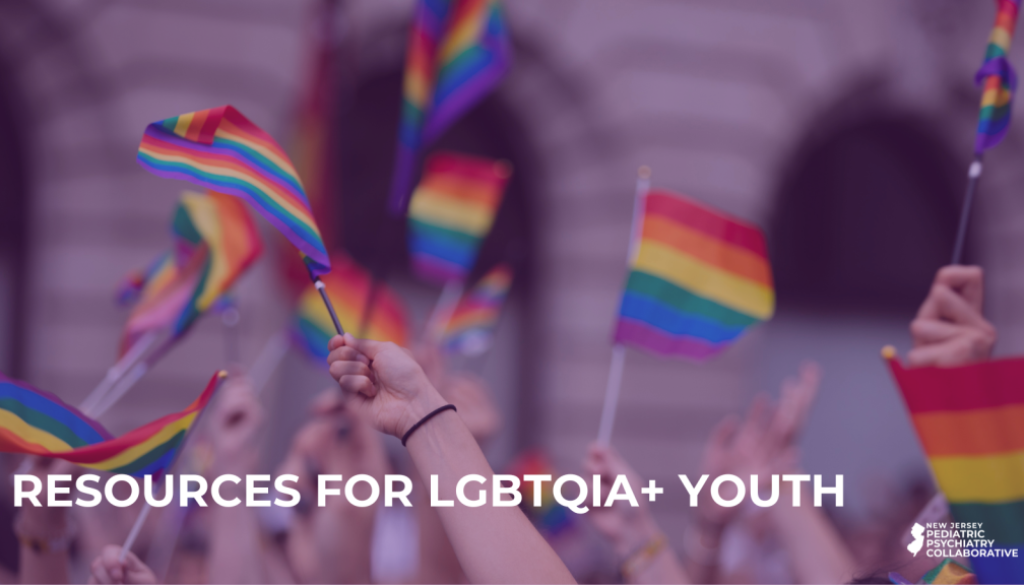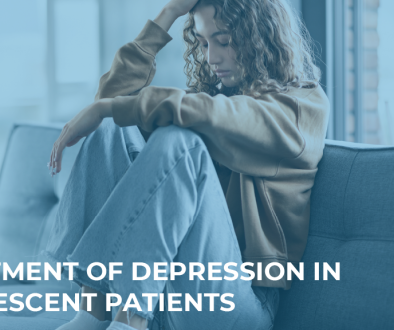LGBTQ+ Youth: Reducing Health Disparities in the Primary Care Setting
By Debra E. Koss, MD
Many LGBTQ+ youth thrive during adolescence, however, stigma, discrimination, family disapproval, social rejection, violence, and lack of access to health care place LGBTQ+ youth at risk for significant negative health and life outcomes. CDC’s 2023 Youth Risk Behavior Survey (YRBS) data show substantial health disparities among LGBTQ+ youth, including:
- Been bullied at school: 29% LGBTQ+ students vs.16% cisgender and heterosexual students
- Felt sad or hopeless: 65% LGBTQ+ students vs. 31% cisgender and heterosexual students
- Seriously considered suicide: 41% LGBTQ+ students vs. 13% cisgender and heterosexual students
- Used illicit drugs: 15% LGBTQ+ youth vs. 8% cisgender and heterosexual youth
Community connectedness, including support from family, friends, and school, are protective factors improving the resilience of LGBTQ+ youth. Furthermore, access to pediatric health care providers who are appropriately trained, culturally competent, and non-judgmental, can reduce health disparities and improve outcomes for LGBTQ+ youth. Here are steps pediatric health care providers can take to reduce health disparities.
Make the Office Teen Friendly for LGBTQ+ Youth
Display posters or brochures in waiting rooms that show both same- and opposite-gender couples.
Display brochures on specific LGBTQ+ health issues. Place LGBTQ+ information in exam rooms as teens may be more likely to look at these resources in private.
Use affirming language and terminology. Intake forms and questionnaires should use gender-neutral terms.
Ensure that staff are trained to speak with and care for LGBTQ+ youth as all office staff play a key role in creating a non-judgmental and welcoming environment.
Access continuing education programs and staff trainings to increase knowledge of LGBTQ+ issues including stigma, discrimination, homelessness, depression, substance use, suicide, sexually transmitted infections.
Develop office policies that ensure confidentiality. This includes communications and test results. Parents should not have access to protected health information without adolescent consent. Electronic health records may need to be modified.
Post a non-discrimination statement.
Support observance of LGBTQ Pride Day, World AIDS Day, and National Transgender Day of Remembrance.
Promote Healthy Sexual Development
Obtain a comprehensive, confidential, developmentally appropriate psychosocial history.
Ask about gender identity, sexual orientation, and sexual practices. Use gender neutral terms. (“Are you dating anyone?” “Are you attracted to males, females, or both?”)
Collect information about ethnic and religious background, socioeconomic status, and overall strengths within the child, family and community, so that you can individualize the care of the patient.
Discuss health-promotion strategies including use of condoms and screening for sexually transmitted infections.
Promote Mental Health
Screen for substance use, depression, and other mental health issues at each annual well-visit and anytime time you, the patient or parent identifies a mental health concern. Address these issues with referrals to mental health professionals, including consultation with the New Jersey Pediatric Psychiatry Collaborative.
Refer to psychotherapy to assist LGBTQ+ youth address the emotional stress associated with stigma and discrimination, build healthy coping skills, explore healthy sexual development, and build support networks.
Treat co-existing mental health concerns.
Assist Parents of LGBTQ+ Youth
Acknowledge parents’ feelings for the adolescent who has disclosed.
Provide links to organizations that advocate and provide information for LGBTQ+ youth and their families.
Check in with parents regularly as attitudes may change and new questions may emerge.
Maintain a Virtual Resource Library for LGBTQ+ Youth and their Families, Friends, and Support Systems
Here are several examples of resources.
The Trevor Project www.thetrevorproject.org operates a nationwide, around-the-clock crisis and suicide prevention hotline for sexual minority youth and promotes awareness and understanding through education, research and advocacy.
Parents, Families, and Friends of Lesbians and Gays www.pflag.org is a support, education and advocacy organization for LGBTQ+ youth and members of their support system.
Gender Spectrum www.genderspectrum.org works with families, organizations and institutions to increase understanding of gender and create a gender-inclusive world for children and youth.
Advocate for Inclusive Policies and Resources in your Community
Collaborate with schools, places of worship, and other organizations. Share fact-based, evidence-based information regarding the needs of LGBTQ+ youth.
Support the development of policies that promote zero tolerance for discrimination, bullying or harassment.
Support the development of policies that foster acceptance.
Engage with lawmakers as a constituent and a pediatric health care provider. Share your knowledge and experience highlighting the importance of policy that is based on science and research. Advocate for policies that ensure access to health care for LGBTQ+ youth.
Summary
LGBTQ+ youth face unique stressors that negatively impact their well-being, including stigma, discrimination, familial and social rejection, and lack of access to health care. These stressors result in significant health disparities for LGBTQ+ youth. Better patient outcomes occur when pediatric health care providers understand the health risks, create welcoming environments in the primary care setting, and provide culturally effective, developmentally appropriate, confidential care for LGBTQ+ youth. With appropriate care and support from pediatric health care providers, and other members of a supportive social network, LGBTQ+ youth will thrive.
Author Profile:

Debra E. Koss, MD
Clinical Assistant Professor, Department of Psychiatry Rutgers-RWJMS
NJPPC Project Manager for the New Jersey Psychiatric Association
References
American Academy of Pediatrics LGBTQ Health and Wellness
Bass B, Nagy H. Cultural Competence in the Care of LGBTQ Patients. (Updated 2023 Nov 13. In: StatPearls (Internet) https://www.ncbi.nih.gov/books/NBK563176/
CDC’s 2023 Youth Risk Behavior Survey: Health Disparities Among LGBTQ Youth




